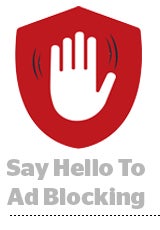 The publisher tech startup Blockthrough, which specializes in retrieving revenue lost to ad blocking, acquired its rival and category pioneer PageFair on Thursday.
The publisher tech startup Blockthrough, which specializes in retrieving revenue lost to ad blocking, acquired its rival and category pioneer PageFair on Thursday.
Terms were not disclosed.
PageFair was one of the first startups offering technology for publishers to counteract ad blocking, either by circumventing the ad blocker or by creating new direct audience agreements, like a paywall or pop-up asking the site to be whitelisted within the ad blocker.
That niche category blossomed in 2016 when ad blocking became more mainstream, and many similar startups transitioned into consent management platforms when GDPR activated.
PageFair’s two co-founders will act as advisers for Blockthrough. There are no other full-time employees coming with the Dublin-based firm.
Blockthrough, which raised a $2.6 million seed round last month, is buying its ways into PageFair’s publisher roster and domain expertise, said co-founder and CEO Marty Krátký-Katz.
“When we started three years ago we had business backgrounds but quickly realized we had a lot to learn about the plumbing of how ad tech and online publishing works,” Krátký-Katz said.
Blockthrough and PageFair both initially focused on technology to disable or override ad blockers, which was a more direct way to earn revenue than offering new user agreements. But that turned into a “cat and mouse game” that wasn’t worth the resources and publishers didn’t like because the results were so inconsistent, Krátký-Katz said.
Blockthrough will continue running PageFair’s ad block site analytics and research reports.
But Blockthrough changed its strategy this year to focus on integrating with the Acceptable Ads program, which allows publishers to serve ads to ad-block users if they pay a cut to the ad blockers and meet certain format standards.
A publisher often can get the ad image through an ad blocker, but stripped of the data, tags, measurement and verification that buyers expect to see, Krátký-Katz said. By working with Acceptable Ads, he said Blockthrough’s ad tech can work within a publisher’s header bidding solution to filter ad-blocking visitors to its exchange and keep the campaign and reporting intact.
Blockthrough is on pace to process $1 million in revenue through the Acceptable Ads program this month, after launching the product in March.
“We saw there was nobody who could return ad blocking revenue by incorporating Acceptable Ads,” according to Krátký-Katz, who’s on the Acceptable Ads Committee, the group that establishes the quality guidelines to whitelist ads.
While many publishers oppose Acceptable Ads, which charges them for the right to serve ads to their own audience, retrieving that revenue is a priority and working with Blockthrough means they don’t formally join the ad blocker program.
“With the existential panic of the 2015-2016 ‘adblockalpse’ behind us, most publishers now have a clear-eyed view that every good ad stack should include ad recovery,” PageFair co-founder and former CEO Sean Blanchfield told AdExchanger in an email. “Ad block is now more of a quality filter than a blocker.”
The German software company Eyeo, which operates the world’s largest ad blocker and founded the Acceptable Ads program, released its own Acceptable Ads Exchange in September to make in-roads with DSPs. But the industry is wary of working directly with Eyeo, presenting an opportunity for a vendor like Blockthrough, Krátký-Katz said.
Big ad networks like Criteo, Taboola and Google have profited immensely from the Acceptable Ads whitelisting model despite paying a cut to the ad blockers because they can monetize an otherwise untapped audience, he said.
“The products that are going to win here aren’t going to be the ones that bring a religious approach,” he said, referring both to publishers rejecting Acceptable Ads out of spite and blockers like uBlock that take a militant approach to blocking all ads. “Solutions need to allow for what the user wants, an ad blocker, and for what the publisher wants, which is revenue growth.”














